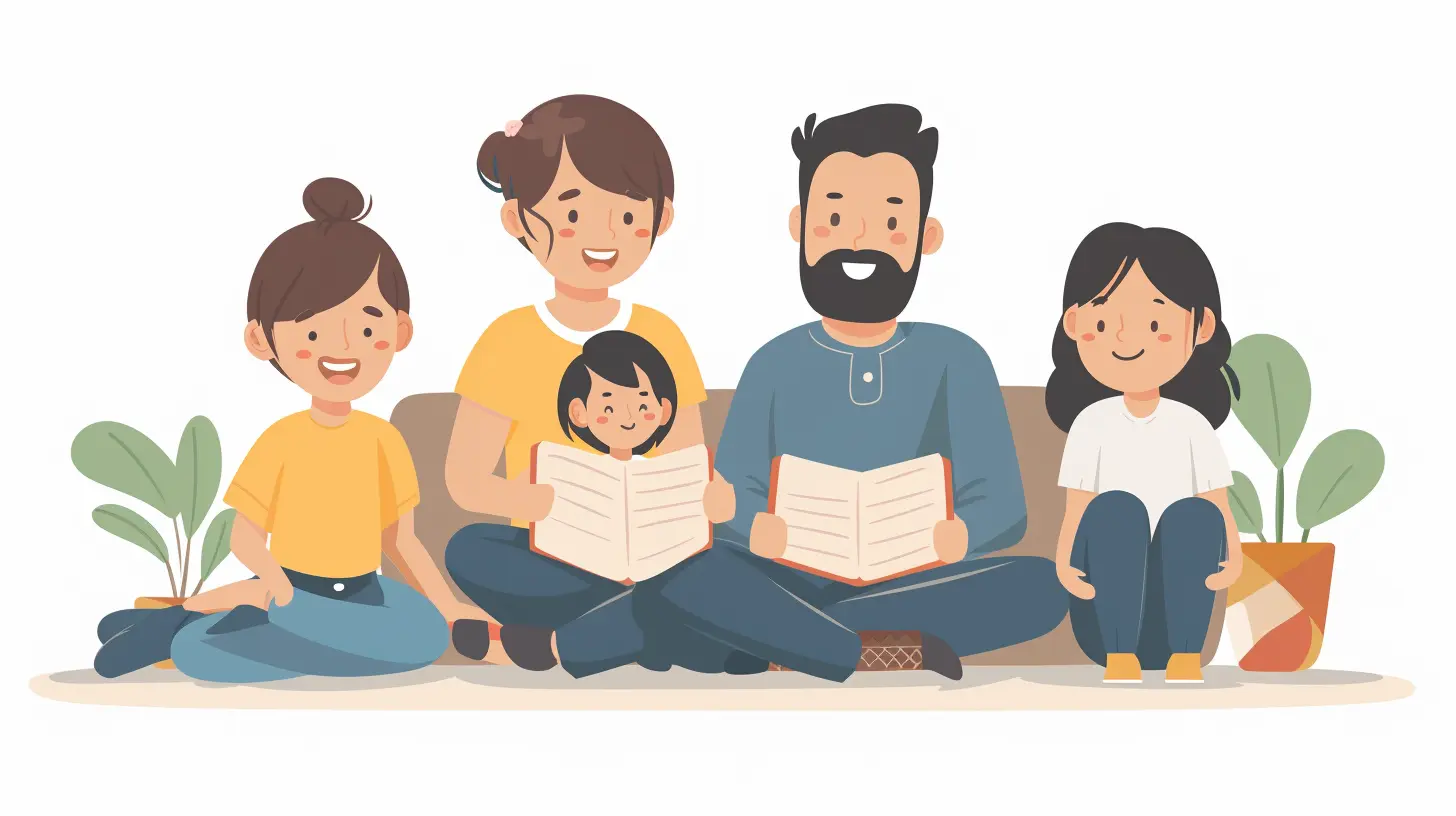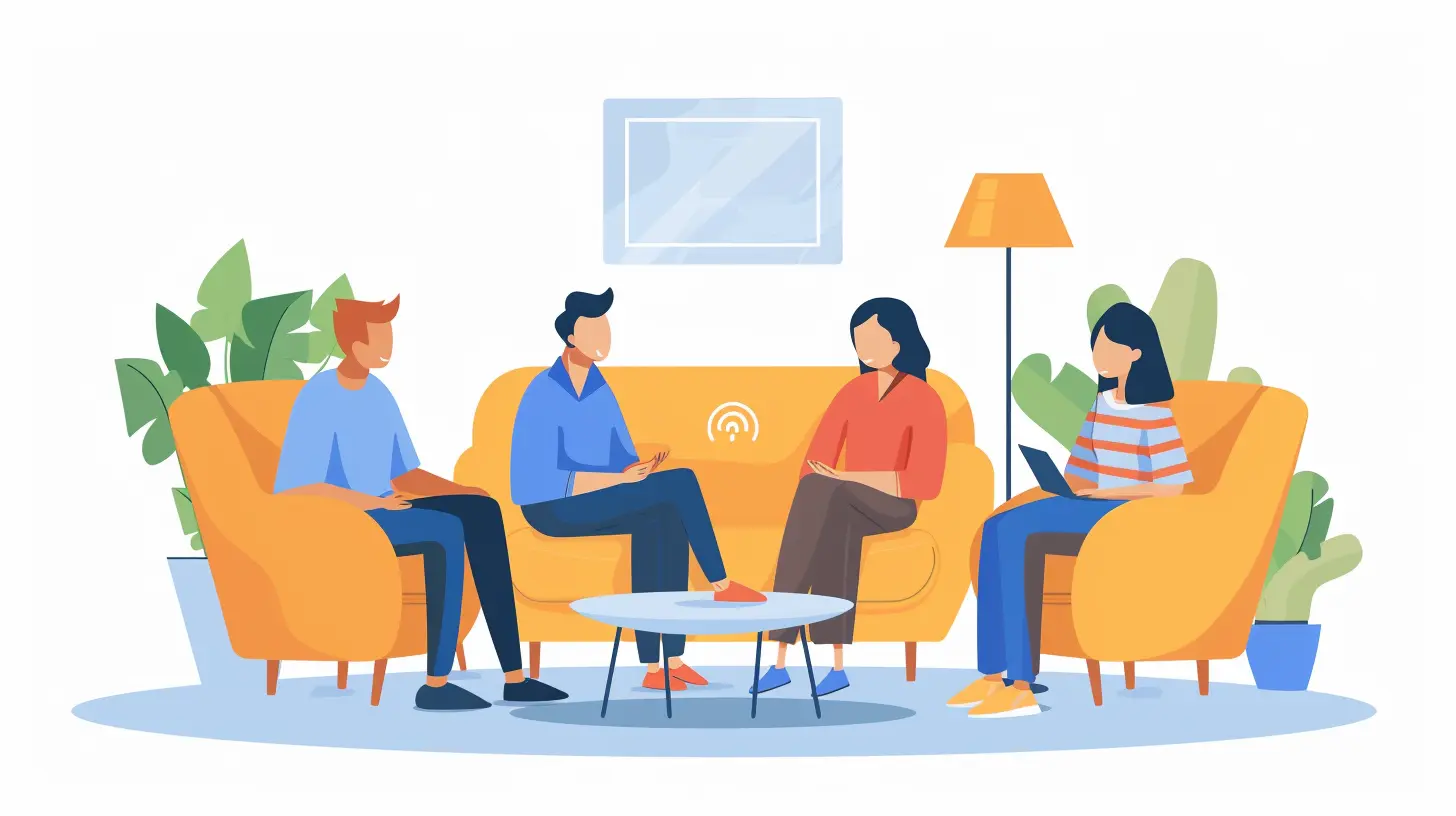6 March 2025
Let’s face it—parenting is tough. Co-parenting? That’s a whole other ballgame. Whether you’re navigating the ups and downs of a divorce, trying to find middle ground with an ex-partner, or simply figuring out how to make decisions together for your kids, it’s no walk in the park.
Enter family therapy. Picture it as a neutral referee or a GPS helping you and your co-parent stay on track. It’s not about pointing fingers or digging up old arguments; it’s about building bridges where there’s been a divide. In this article, we’ll dive into how family therapy can act as a game-changer in strengthening your co-parenting relationship and, ultimately, giving your kids the stability they deserve. So grab a coffee, sit back, and let’s talk about why this could be the lifeline your family needs.
What Is Family Therapy and How Does It Work?
Before we jump in, let’s get on the same page: What exactly is family therapy? Think of it as a structured conversation guided by a trained therapist. The goal isn't to fix everything overnight—as much as we’d wish for a magic wand—but to help families communicate better, understand each other’s perspectives, and solve conflicts in a healthier way.In a co-parenting context, family therapy can provide a safe space to air out grievances, clarify boundaries, and learn how to work as a team—even if you’re no longer a couple. And here's the beauty of it: The focus isn’t just on the two of you. Therapy keeps the kiddos front and center because, let’s be real, their well-being is what this is all about.
Why Is Co-Parenting So Tricky?
Let’s talk straight—co-parenting isn’t a cakewalk. For starters, you and your ex-partner might not even like each other anymore. (Harsh? Maybe. But honest.) Add in different parenting styles, conflicting schedules, and leftover baggage from the relationship? It can feel like you’re trying to solve a Rubik’s Cube without knowing the rules.And then there’s the emotional toll. You might still be healing from the breakup, which can bring up resentment or guilt. Maybe one of you is more flexible, while the other sticks to a strict routine. Or maybe you just can’t agree on how much screen time the kids should have. Sound familiar?
This is where family therapy can swoop in like a superhero cape. It’s designed to help you sort through all this mess and find common ground—not for your sake, but for your kids’.
The Benefits of Family Therapy for Co-Parenting Relationships
So, what exactly can family therapy do for you and your co-parenting setup? Let’s break it down.1. Improved Communication
Communication between co-parents can sometimes feel like walking on eggshells. You don’t want to say the wrong thing, and before you know it, you’re both avoiding important conversations. Therapy can teach you how to talk to each other in a way that’s constructive, not combative. There’s no room for passive-aggressive texts or cryptic voicemails here—just clear, respectful dialogue.2. Conflict Resolution Skills
Disagreeing is inevitable. You’re two different people with two different perspectives—that’s just life! But family therapy equips you with tools to resolve conflicts without things spiraling out of control. It’s like learning to fight fair, keeping the focus on solving the problem rather than throwing blame around like a hot potato.3. Establishing Healthy Boundaries
One of the trickiest parts of co-parenting is figuring out boundaries. Maybe one of you is overstepping, or perhaps the other feels left out of decisions. Therapy helps you identify and respect these boundaries, making sure both parents feel valued in their roles. Think of it as setting up the rules of a game so everyone knows how to play.4. Focusing on the Kids
At the heart of co-parenting is one universal truth—you both want what’s best for the kids. Family therapy reminds you of that shared goal. It challenges you to set aside personal issues and focus on creating a healthy, supportive environment for your little ones. After all, a happy and emotionally secure kid is the ultimate win, right?5. Building Trust Over Time
Trust might’ve taken a hit during the breakup, and that’s okay. Rebuilding trust doesn’t happen overnight, but therapy can help lay the foundation. By showing up, doing the work, and committing to co-parenting as a team, you slowly build a new kind of trust—one where you both know you’re in this for your kids.
Common Misconceptions About Family Therapy
Let’s address the elephant in the room—the misconceptions. A lot of people shy away from therapy for various reasons, but let’s bust a few myths:- “Therapy is just for broken families.” Nope. Therapy is for any family that wants to improve. You don’t have to hit rock bottom to benefit from it.
- “The therapist will take sides.” Not true. A good therapist is neutral and focused on helping you both create a better future for your kids.
- “It’s too expensive.” While therapy can be an investment, many therapists offer sliding scales, and there are nonprofit organizations that provide affordable options.
How to Get Started With Family Therapy
Okay, so maybe by now, you’re thinking, “Alright, this sounds like something we need.” But where do you even start?1. Have an Open Conversation With Your Co-Parent
The first step is sitting down with your co-parent and discussing the idea of therapy. Frame it as something positive—something for the kids—not as an attack or a way to fix them.2. Choose the Right Therapist
Every family is unique, so finding the right therapist is key. Look for someone with experience in family systems and co-parenting dynamics. Don’t be afraid to ask questions during the initial consultation.3. Be Willing to Commit
Therapy isn’t a one-and-done deal. It’s a journey. You’ll need to show up, put in the effort, and trust the process. Remember, it’s for the long-term benefit of your family.Tips for Making the Most Out of Family Therapy
Want to make sure you’re squeezing every ounce of value out of your therapy sessions? Here are some quick tips:- Be Honest: If you sugarcoat things, you’re not doing anyone any favors. Be honest about your feelings, struggles, and expectations.
- Practice Active Listening: Don’t just wait for your turn to talk. Truly listen to your co-parent’s perspective, even if you don’t agree with it.
- Stay Focused on the Kids: Whenever things get tense, remind yourself why you’re here—it’s all about the kids.
- Be Patient: Progress takes time. Celebrate the small wins and keep moving forward.
The Ripple Effect of Strong Co-Parenting
Here’s the thing about co-parenting: when you and your co-parent are on the same page, it creates a ripple effect. Your kids feel more secure, their emotional health improves, and they learn valuable lessons about compromise and teamwork. Isn’t that what we all want for our kids? Family therapy might seem like a big step, but the payoff? Totally worth it.Final Thoughts
Co-parenting isn’t always easy, but it doesn’t have to be a battleground, either. Family therapy offers a roadmap to navigate the twists and turns of raising kids together, even when your relationship status changes. It’s about learning, growing, and creating a new kind of partnership—one rooted in respect and a shared love for your children.So, if you’ve been feeling stuck in your co-parenting journey, why not give family therapy a shot? It might just be the tool you need to turn things around.









Ashira Sheppard
Co-parenting is like a duet—sometimes you hit the right notes, and other times it's more of a cat karaoke! Family therapy can help turn those screeches into sweet harmony, making parenting feel like a symphony instead!" 🎶
March 27, 2025 at 3:38 AM